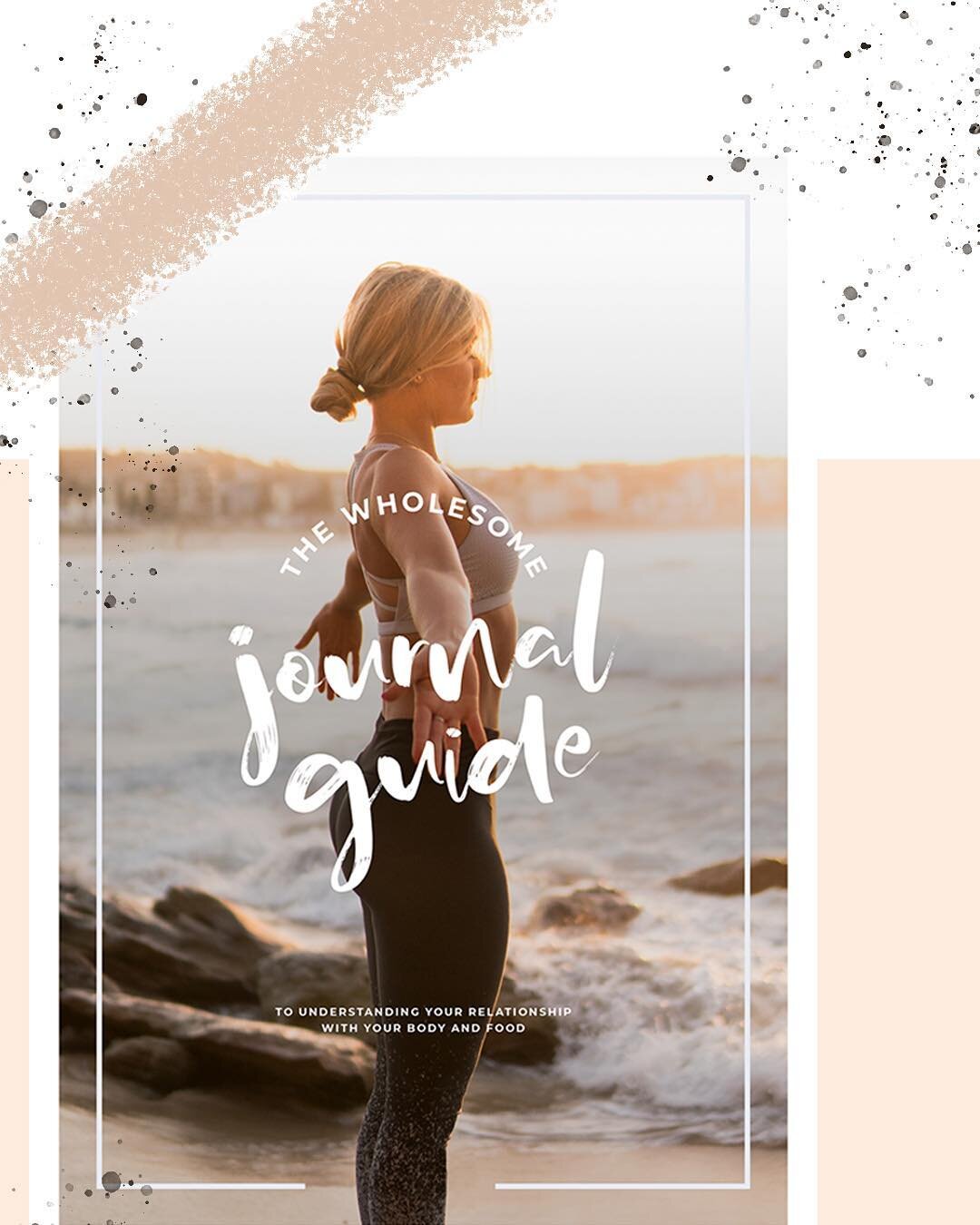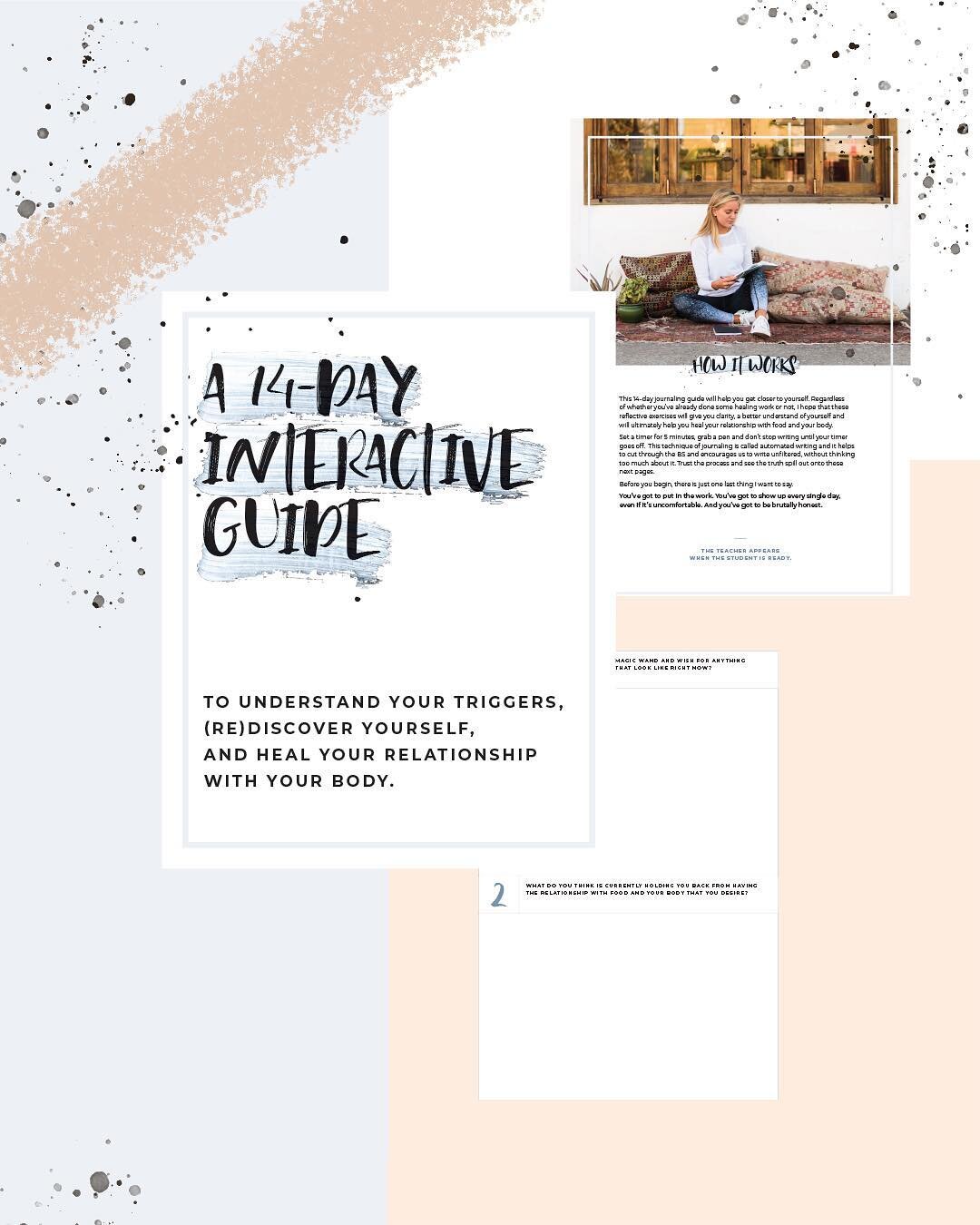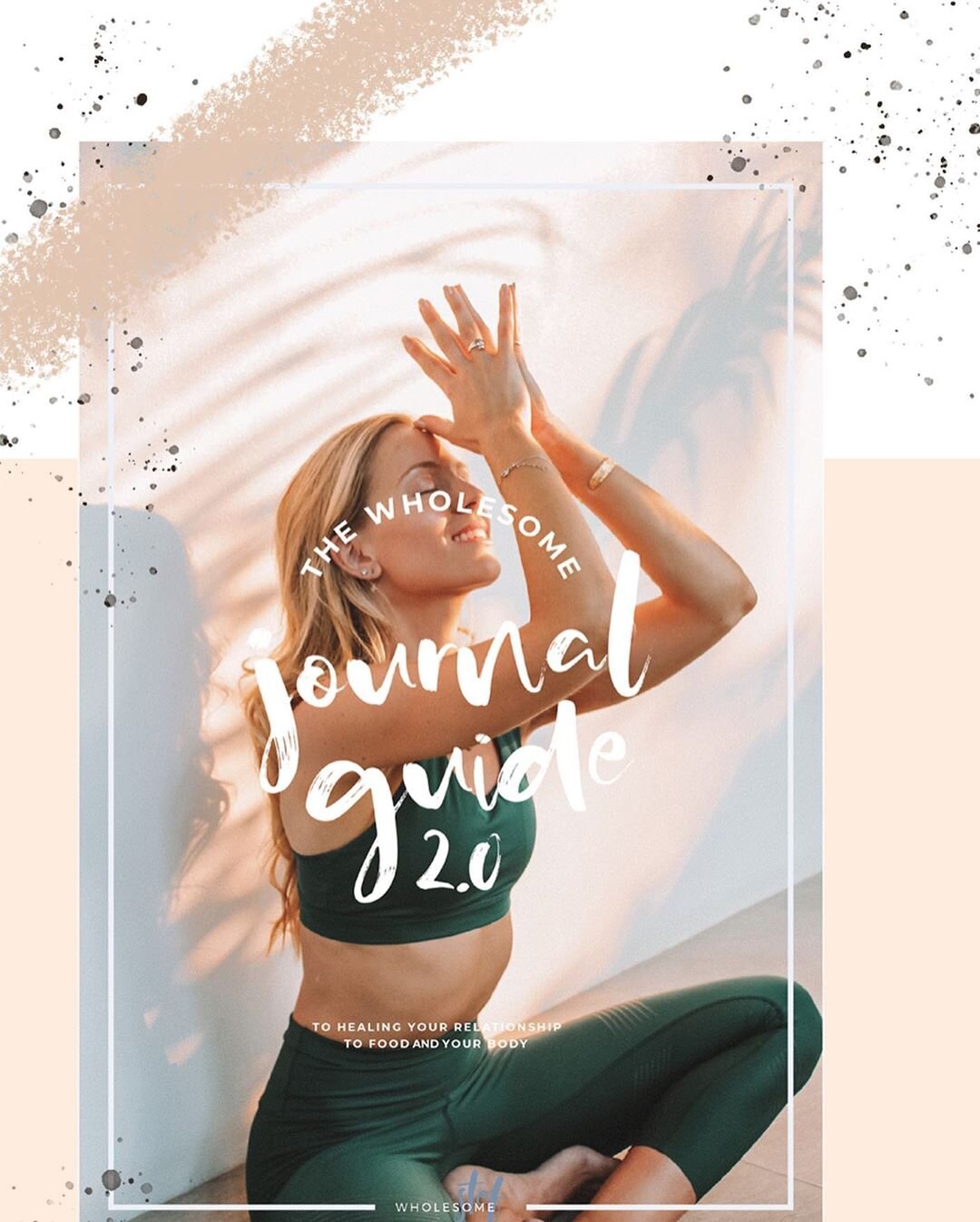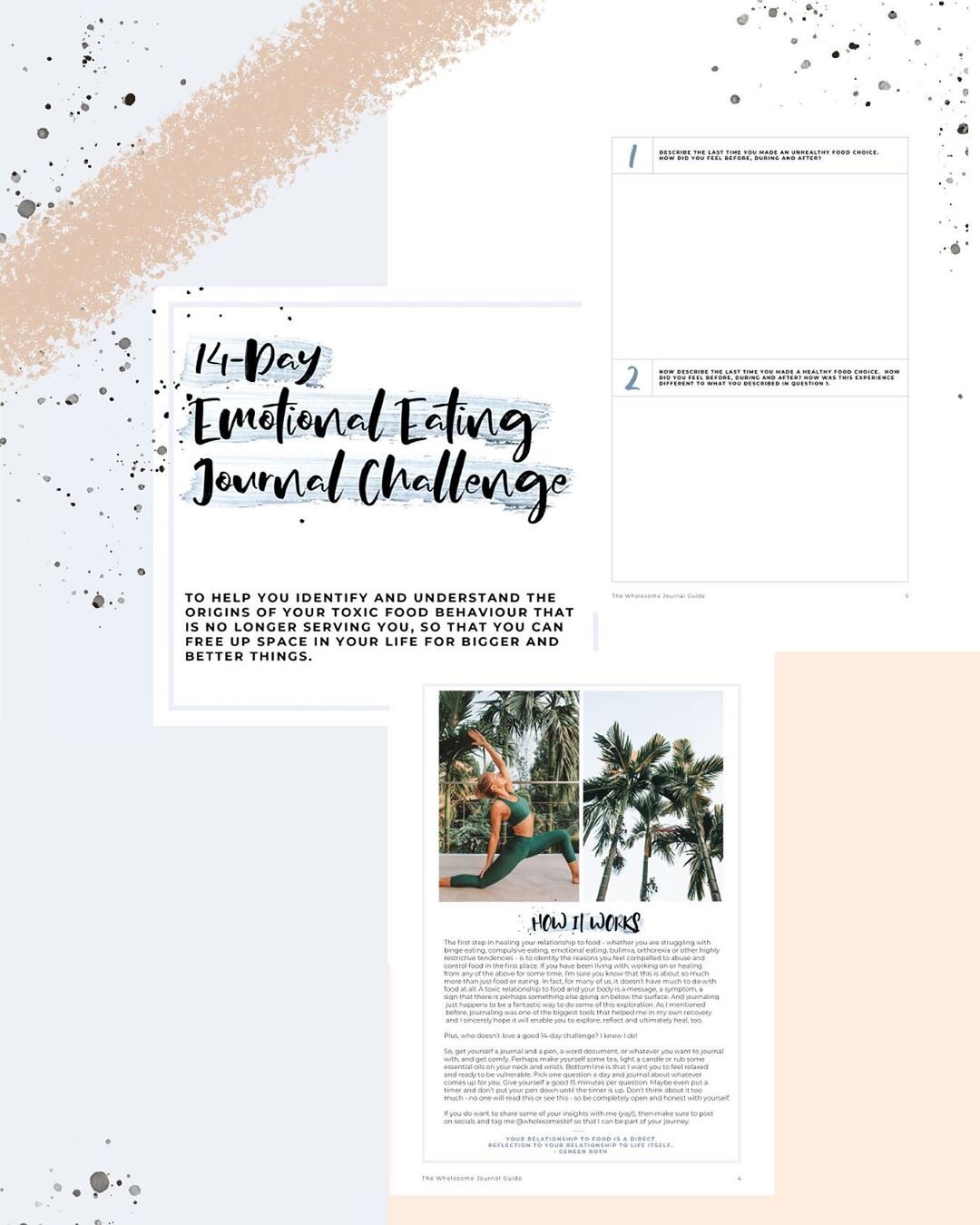The 3 Ways Journaling Could Change Your Life + Journaling Prompts for Eating Disorder Recovery
In 2012, I was in the tight grip of an eating disorder. I started working with a Health Coach whom herself had a past with disordered eating, and it’s one of the best decisions I’ve ever made. The second best decision I made was to start journaling.
I don't believe I would have recovered from my own eating disorder had it not been for my journal. Since that very first day of journalling - 11th of March 2012 to be exact - I have filled countless of journals with my deepest, darkest, weirdest thoughts. I don’t know why I started journalling that day as no one had recommended it to me per se, but I think I was just intuitively drawn to it. Looking back at it, journalling truly was my saving grace. An eating disorder keeps the world small, you know. It ignores the big scary questions and creates a sharp focus in your life: your body weight and shape. But sitting there in front of those empty pages, tears in my eyes… it was the first time in a long time that I got truly honest with myself.
Are you still wondering what the point of journaling is and how exactly it will help you make peace with your plate? Here’s my top 3 reasons.
Processing emotions in the moment
Journaling is about discovery and curiosity, both for the big life questions but also for your day-to-day thoughts and feelings. It can help us sort through whatever we’re going through in the moment and allows us to express them in a safe way. By committing to journalling every day, we stay honest and in touch with ourselves all the time and prevent negative feelings from building up beyond the point of no return. It’s essentially like a best friend on speed dial.
For me, journaling always felt like a big brain dump, getting all the negative thoughts out of my system so my mind wouldn’t be polluted by them 24/7. For the better part of five years, I carried my journal around with me everywhere I went and would fling it open whenever I needed to get my thoughts on paper. If you ever saw me frantically writing in a little notebook in uni lectures, that’s probably what I was doing!
Research backs up the in-the-moment-processing benefits of journaling. A staggering 95% of decisions are driven from our subconscious. This helps us in many ways as we couldn’t possibly be taking in and reacting to all the information that the world throws at us. But the issue is that only 5% of our decisions, emotions and behaviours are driven by our conscious mind. As a result, we react in ways that we are used to. But if that reaction is one that’s self-destructive, then that’s not the path we want to continuously go down. And how can we expect to change our reactions, if we never really pay attention to them and question them? As Carl Jung said, '“until you the make the unconscious conscious, it will direct your life and you will call it fate.”
“Science has revealed that only 5% of the day are we operating our nervous system using the conscious mind’s creative wishes and desires. 95% of the day, our life is coming straight out of the programs in our subconscious” — Bruce Lipton
Journaling brings us into the present moment and forces us to to give attention to those thoughts and emotions that are coming up. If you can get yourself to journal right after something triggered your inner critic or when you just had a binge, that’s where the magic happens! It teaches us to confront ourselves right then and there and become comfortable with the uncomfortable.
Self-awareness & Growth perspective
Self Awareness
This goes hand in hand with the first point. The more we journal to process our thoughts in the moment, the more self awareness we build over time.
“Self-awareness involves deep personal honesty. It comes from asking and answering hard questions” — Stephen R.Covey
Journaling offers an opportunity to reflect on those hard questions and dig deep within our soul. Especially in my early days, I consistently had big aha-moments whilst journaling as I was able to break down certain struggles and understand why I was doing what I was doing. Looking back, I can honestly say that journaling has made me into a better version of myself and has made me a stronger person, as I have a better understanding of my values, my strengths and my weaknesses.
Growth Perspective
Having a journal of your personal journey also puts everything into perspective. Re-reading my journal entries and looking back at what I was thinking and feeling in those times, has really helped me to understand myself on a much deeper level. It reminds me of how far I’ve come and makes me realise I’m so much stronger than I gave myself credit for. When I read my old journals now, I can’t even believe that that little lost girl was me. When I’m in a phase where I’m struggling, it also gives me comfort to rummage through my old pages as I realise everything is temporary and all will work itself out eventually.
Journaling is the ultimate gratitude practice
“The average person has about 12,000 to 60,000 thoughts per day. Of those, 80% are negative and 95% are exactly the same repetitive thoughts as the day before and about 80% are negative.” — National Science Foundation
Time to get some more positivity in our lives! Here’s some benefits of keeping a gratitude journal. It helps you to:
Lower stress levels.
Fall asleep more easily.
Gain a new perspective of what is important to you.
Learn more about yourself and become more self-aware.
Bring you out of a funk.
I know - being grateful is really hard when you’re in a funk and are focused on the negative. But that’s when it’s the most powerful! Sometimes when I’m having a particularly shit day, I force myself to sit down and jot down what I’m grateful for. At first I’m stubbornly staring at the empty page in front of me, unable to come up with anything, but as soon as I write down the first two or three lines, I notice a shift. My shoulders ease, a hint of a smile crawls across my face and the grey clouds hovering over my brain begin to lift. Over time, we learn to stop fixating on the negatives and our brain becomes more adept at focusing on the positives. Essentially, gratitude begets more gratitude.
We all can benefit from a regular gratitude practice - disordered eating aside.
But if you’re struggling with your relationship to food and your body, this simple practice can be transformational. Personally, my eating disorder made it almost impossible for my to fully engage in life, to connect with others and truly experience joy. This was because the daily battles of the disorder were all-consuming. Binging was my way to cope with negative emotions, but in the same breath it also flattened out any positive emotions I had in my life. I felt extremely numb and disengaged from aspects of life that should have otherwise brought me joy. Introducing a gratitude journaling practice into my life allowed me to cultivate the positives and helped drown out the negative voices, and it’s a practice I continue to this day.
Sounds good but don’t know where to start?
I have created two free 14-day Emotional Eating Journal Guides, designed to help you dive deeper into the origins of your toxic food behaviour that is no longer serving you, so that you can free up space in your life for bigger and better things. Essentially, this is a sneak peak into some of the questions I work through with my clients in our one-on-one coaching sessions. I hope that you have many lightbulb moments along the way and are able to use this increased awareness to make positive changes in your life.







